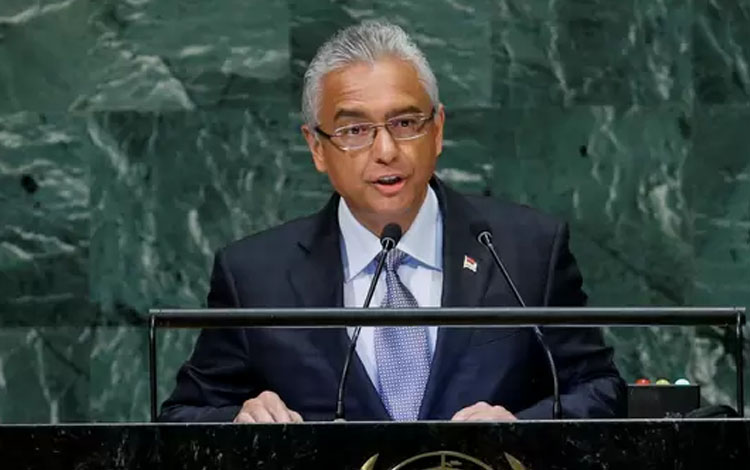Militant Socialist Movement (MSM) of Mauritius has bagged majority seats in the recently held election. It has secured a r five year term for the present incumbent Prime Minister Pravind Kumar Jugnauth. Mauritius elections have received world-wide attention since it is becoming a flourishing financial hub of Africa, and many countries are using the country for routing their investments on account of the liberal tax regime. Mauritius, billed as the most advanced nation in Africa with a population of 1.3 million, is also a strong link between Africa and Asia
The ruling MSM bagged 38 of the 62 seats while its arch rival, the Labour Party, won 13 seats. The Mauritian Militant Movement (MMM), another political grouping, got 9 seats. The island of Rodrigues’ two seats were gone to the Organisation of the People of Rodrigues (OPR) party.
It is the second term of Jugnauth,( 57). He became prime minister in 2017, when his father stepped down from the post. In his brief first term, Jagunath introduced a higher minimum wage to try and improve wealth distribution. Labor welfare is the main political plank for all the three political parties and each party outwits the other in taking up issues that have direct bearing on labor. The keenly contested election has witnessed a voter turnout of 77%, higher then the previous election, when the turnout clocked 75%. The opposition parties have leveled corruption and nepotism on the ruling party. But their combined efforts could not stop the juggernaut of Jagunath, who proclaimed that he would continue with the reform and welfare measures being followed by his government.
The buoyant economy of the country registered a growth of 3.8% last year, which is expected to improve to 4.1% riding on the back of booming financial and tourism sectors. The island nation attracted a foreign direct investment of US$ 295 million in the first six months of 2019, up from the previous year’s figure of US$ 240 million (approximate).





